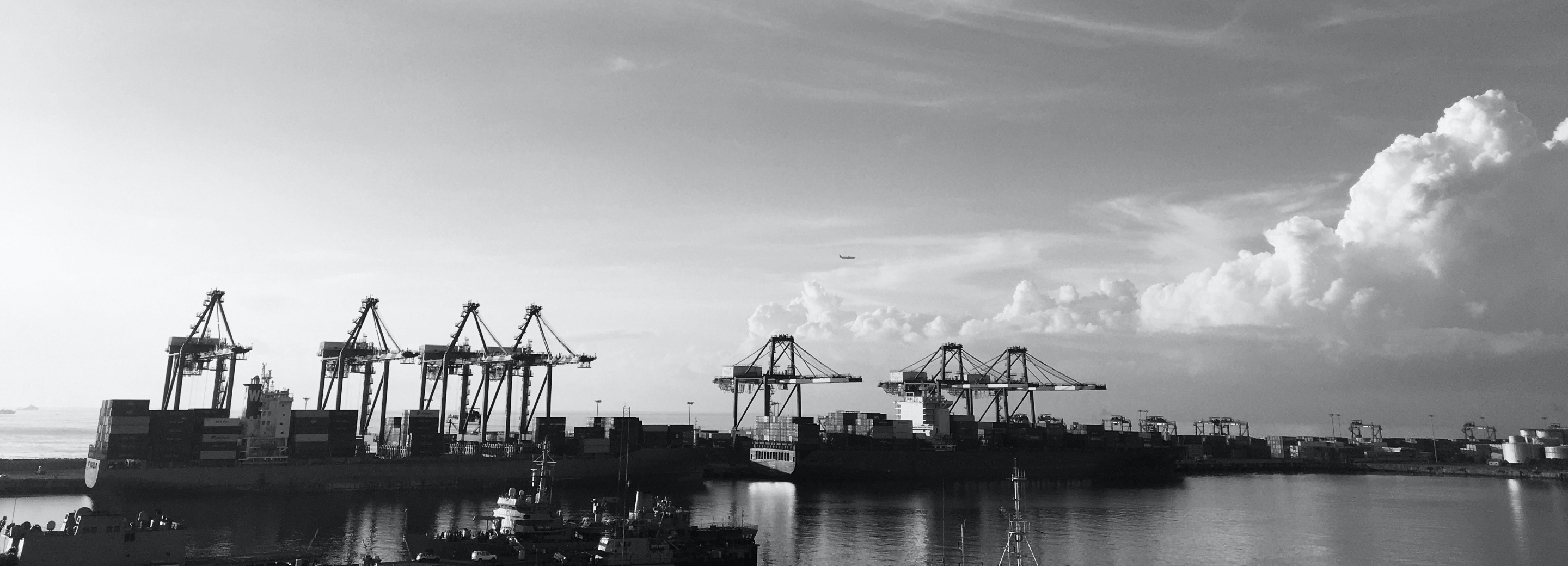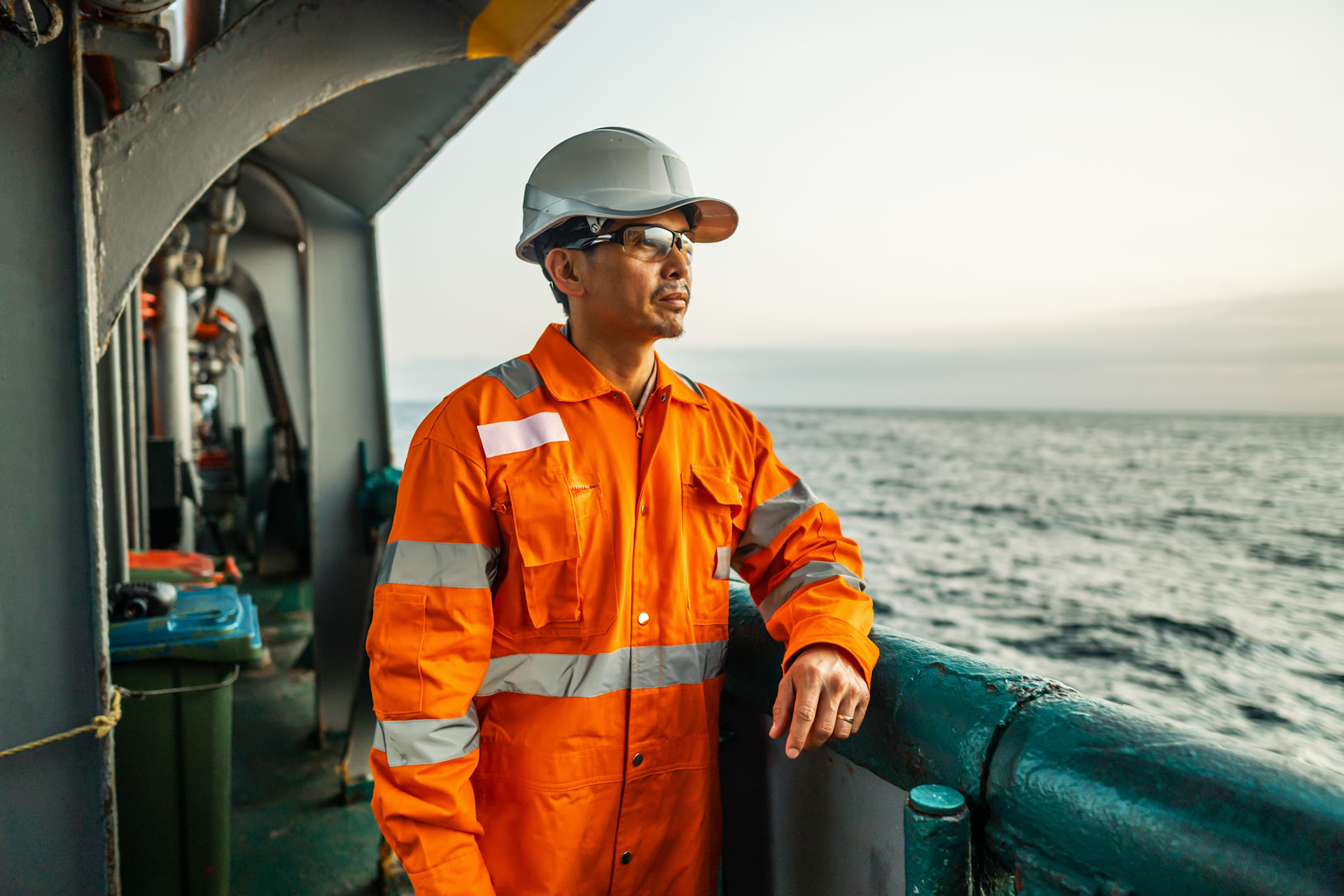
The shipping industry needs to set ambitious targets to help prevent global climate catastrophe, the International Transport Workers’ Federation (ITF) cautions in a new position paper launched today.
There are currently more than 50,000 cargo ships on the world’s oceans, the majority of which run on low-grade, heavy ‘bunker’ fuel. Together, the ships emit as much greenhouse gas into the atmosphere as entire countries, such as industrial powerhouses Germany and Japan.
International shipping has not been explicitly included in the landmark Paris Agreement or its predecessors. The Paris Agreement aims to limit the global temperature increase to 1.5°C. To bring international shipping into line with the Paris Agreement, the ITF is calling for the industry and regulators to commit to a target of zero-carbon by 2050.
“People who work at sea witness the impacts of climate change every day and are extremely concerned that their industry is not acting quickly enough,” said Stephen Cotton, the ITF’s General Secretary. “Huge changes are needed swiftly to switch the shipping industry away from fossil fuels. Seafarers have the passion, knowledge and ideas to help move the industry to a carbon-free future.
“The decisions made by leaders over the coming weeks at COP and elsewhere will be crucial to preventing irreversible climate change. As working people, we deserve a planet that is safe to live on.”
The ITF’s sustainable shipping position paper released today, The green horizon we see beyond the big blue, set out eight ‘fundamental principles for a just transition’ to make sure the decarbonisation of the industry includes workers’ voices, as the industry tests alternative fuels, redesigns skills and career pathways, and shifts employment from fossil fuels to alternative fuel bunkering systems.
“Seafarers want to be part of the solution,” said David Heindel, ITF Seafarers’ Section chair and the Federation’s Sustainable Shipping Working Group chair. “We want to be proud of the action taken by our industry. We want to lead the transition.”
But switching from carbon heavy bunker fuel to new energy sources such as hydrogen or ammonia has the potential for danger for workers, the ITF’s paper points out. Safety must be carefully thought through. Seafarers must receive adequate training. Changes such as the introduction of new technology must not be used as an excuse to reduce crewing numbers on ships or to attack workers' jobs or conditions. In fact, it says, the transition could lead to more employment, and is especially an opportunity to encourage more women and young people to take up work at sea.
"Seafarers must be at the table from the outset, if we are to deliver sustainable shipping for future generations,” said Heindel. “The industry would be well-advised to draw on workers’ experience and expertise. That way, plans for achieving zero-carbon emissions can happen quickly, safely and fairly.”
Ports, the ITF warns, will need major investment to replace diesel tanks and pipeline infrastructure with the fuel systems of the future. Upgrades could cost hundreds of billions of dollars . Transitioning shipping to zero-carbon will be a challenge, particularly in the global south. The ITF position paper calls on international regulators, governments and the shipping industry itself to look at ways the transition can be funded fairly, particularly for investments needed in the world’s poorest countries.
“A just transition for workers was included in the Paris Agreement for a reason – there can be no climate justice without labour justice,” said Cotton. “Workers will drive the urgent transformation of the global economy, and seafarers will drive the transformation in shipping. We’re up for the challenge.”
The paper comes as Glasgow hosts the 26th UN Climate Change Conference of the Parties (COP26 31 October – 12 November 2021). The ITF has organised an online roundtable event today to launch the position paper and to discuss the future of sustainable shipping. You can watch it here:
The panel brought key voices from across industry, including: • David Heindel – Chair, ITF Seafarers’ Section, Sustainable Shipping Working Group
• Guy Platten – Secretary General, International Chamber of Shipping
• Stephen Cotton – General Secretary, ITF
• Katharine Palmer – Shipping Lead, UN High Level Climate Champions team for COP26
• Sooraj Chandran – Seafarer, NUSI member (India)
• Captain Fraser Matthew – Seafarer, Nautilus member (Great Britain)
• Lindsey Austin Seafarer – SIU member (USA)
